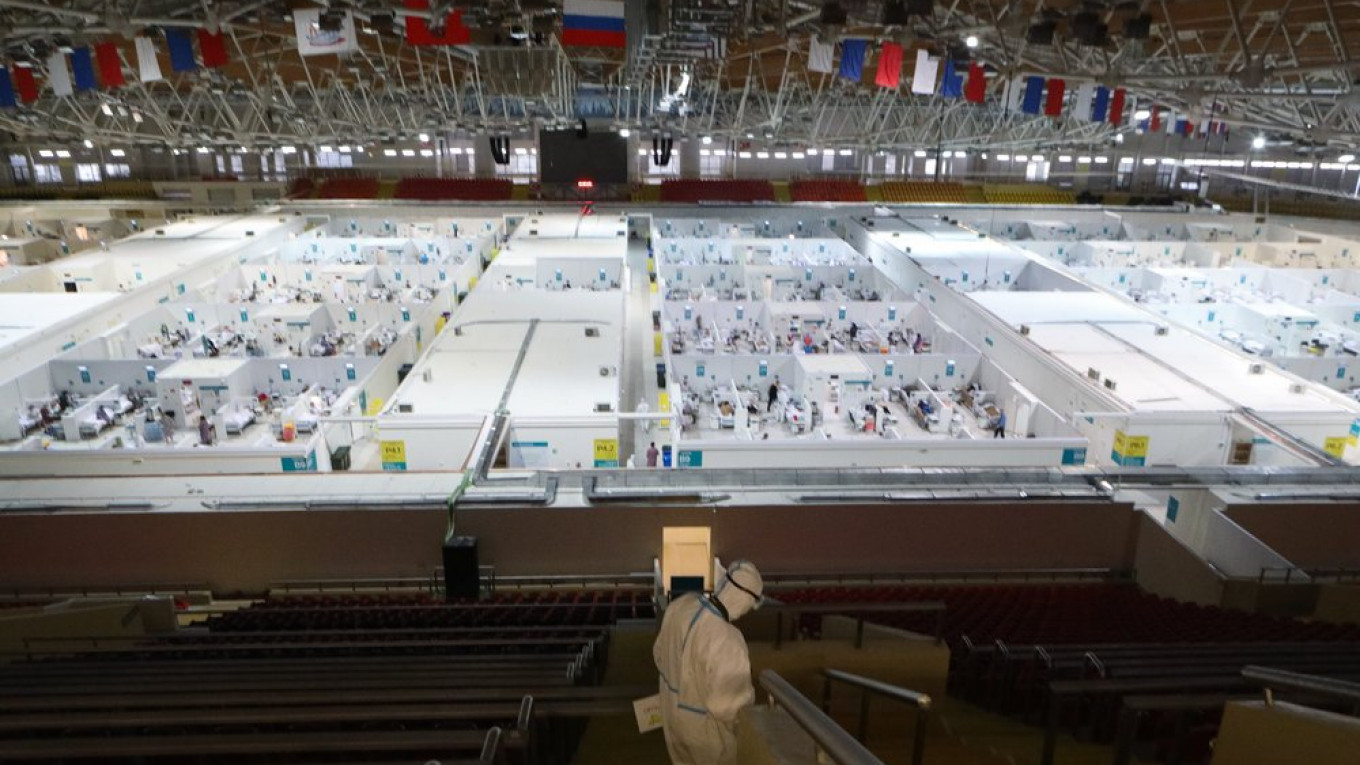Russia on Saturday passed 3 million confirmed coronavirus infections, as authorities hold out against reimposing a national lockdown while the country is battered by a second wave.
Official figures showed that a total of 3,021,964 cases have been detected, with 54,226 deaths.
In the past 24 hours, 29,258 new infections and 567 deaths were registered in Russia, fourth on the list of hardest-hit countries worldwide.
Since winter began, each week has brought new records for new cases and deaths, with epicenters in capital Moscow and second-largest city St. Petersburg.
Poorer regions of the country, often less well-equipped with medical facilities, also report a troubling picture.
Nevertheless, official figures point to a lower death rate from the virus in Russia than in western Europe or the United States, something President Vladimir Putin has boasted about for months.
Putin said last week at an annual press conference that Russia had done a "better" job managing the pandemic than western countries.
But Russian authorities only count as Covid deaths those where an autopsy confirms the virus was the main cause.
Statistics agency Rosstat in October recorded 50,000 more deaths than in the same month last year.
And between March and October, there were 165,000 excess deaths compared with the same period in 2019, suggesting the true toll of the pandemic is far higher than authorities will admit.
Looking to protect a suffering economy, Moscow has so far refused to order a new nationwide lockdown, aiming instead to protect people with mass vaccinations using its homegrown Sputnik V shot.
Health Minister Mikhail Murashko said on public TV Saturday that the vaccine is "safe and effective" for general use, authorizing it to be given to the over-60s.
A Message from The Moscow Times:
Dear readers,
We are facing unprecedented challenges. Russia's Prosecutor General's Office has designated The Moscow Times as an "undesirable" organization, criminalizing our work and putting our staff at risk of prosecution. This follows our earlier unjust labeling as a "foreign agent."
These actions are direct attempts to silence independent journalism in Russia. The authorities claim our work "discredits the decisions of the Russian leadership." We see things differently: we strive to provide accurate, unbiased reporting on Russia.
We, the journalists of The Moscow Times, refuse to be silenced. But to continue our work, we need your help.
Your support, no matter how small, makes a world of difference. If you can, please support us monthly starting from just $2. It's quick to set up, and every contribution makes a significant impact.
By supporting The Moscow Times, you're defending open, independent journalism in the face of repression. Thank you for standing with us.
Remind me later.






